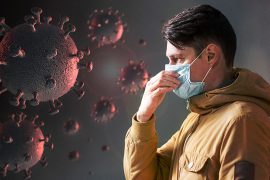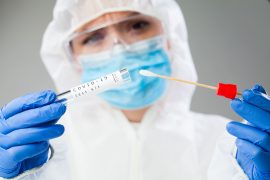The COVID-19 vaccine brings the promise of a global rescue from the coronavirus but the myths and misinformation are bubbling on social media and other platforms that could be dangerous. Hence in this article, we will burst all the myths around the COVID-19 vaccine and help you with the facts.
Myth 1: Due to their rapid development, the COVID – 19 vaccines are not as safe as all safety protocols have not been followed/ COVID-19 vaccines are not being tested against a placebo in clinical trials.
Fact: The vaccines are proven safe and effective in well-conducted clinical trials. All COVID-19 vaccines have undergone the same stringent regulatory approval procedures as every other vaccine needs to, meeting all safety standards, despite been developed in the best time, without skipping any testing step. Contradicting the prevailing doubts, we should be thankful to the exceptional global alliance of experts in the field and the giant pharmaceutical corporations for their involvement, due to which, the vaccines have been developed for human use in such a short timeframe. Also, the clinical trials and regulatory review of safety, have consumed nearly the same time as any other vaccine.
Phase 3 trials are the final phase of clinical testing for any investigational drug/vaccine, in which the drug/vaccine is tested in thousands of patients. In this phase of clinical trials, Researchers compare how many patients become infected with the attacking micro-organism (here, the COVID-19 virus) versus the patients who receive a dummy, to conclude the efficacy and safety of the vaccine. As of current knowledge from the WHO, all the COVID-19 vaccine candidates have either completed or are currently under Phase 3 trial investigation.
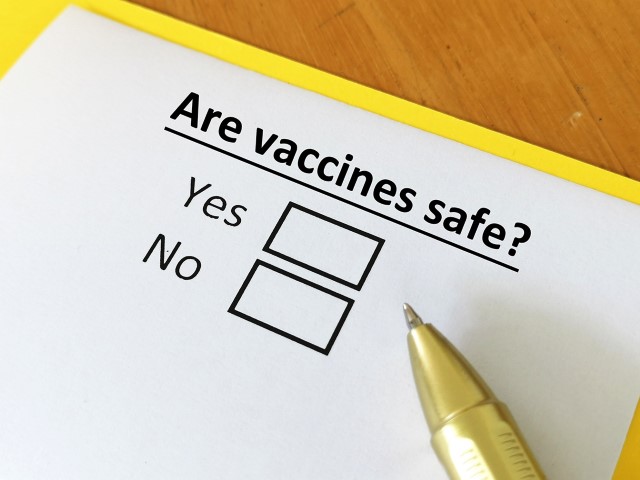


Myth 2: The mRNA vaccine class developed for COVID-19 prevention will change human DNA
Fact: Several candidates for the COVID-19 vaccine depend on the messenger ribonucleic acid (mRNA), which transports genetic information required to synthesize proteins in a human body. These vaccines would initiate cells to make proteins that look like COVID-19 virus parts, activating the human body’s immune system to produce antibodies against these virus parts. So, in the future, if an actual virus tries to invade these vaccinated individuals, the virus would be neutralized through an immune response.
Despite mRNA vaccines being novel products, they are not capable to change human DNA and alter genetic makeup in individuals receiving them. This RNA resides in the human cells for a very brief duration of a couple of hours, where they just provide instructions for producing a new protein and nothing else.
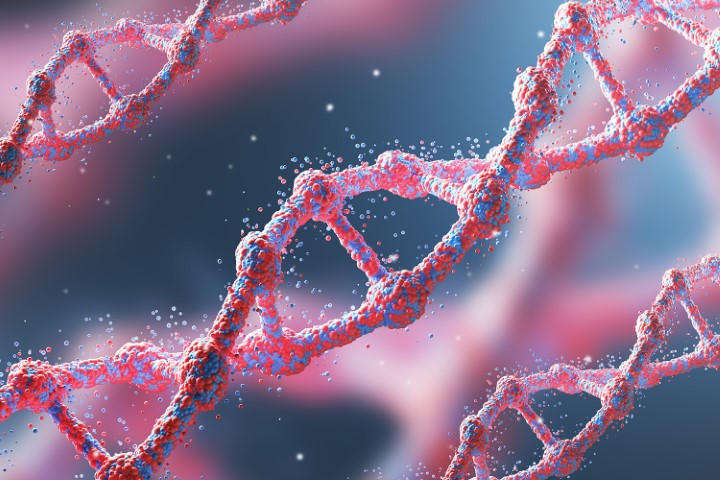


Myth 3: The COVID-19 vaccine will use surveillance technology to track patient’s movements
Fact: There is no knowledge of any vaccine for COVID-19 or any other infection equipped with a microchip or other surveillance sorts. This myth spread when in December 2019, researchers belonging to the Massachusetts Institute of Technology (MIT), who had received capital from the Bill and Melinda Gates Foundation, published their research on a technology where an ink-like injection that they had developed, was able to keep a record of vaccines on the skin of the patient, which could be read through a smartphone application. However, the technology is incapable to track patients’ movements. Though Bill Gates had mentioned that “digital certification” could be helpful in a larger vaccination effort, there is no report that any company/institute has invented such a technology to track COVID vaccine recipients.
Myth 4: The COVID-19 vaccine can cause infertility in 97 percent of its recipients, both men, and women.
Fact: This myth looks to have initiated from an online media platform, where an individual claimed that his unnamed source, working at a multinational pharmaceutical corporation told him that 61/63 women tested with an investigational COVID-19 vaccine developed infertility whereas a separate, male-specific vaccine caused a decreased testicular size, drop of testosterone levels, and marked atrophy of the prostate in males.
As reported by a news corporation, these alleged effects of COVID-19 vaccines look to have been taken exactly as it is, from an unrelated 1989 study from the National Institute of Immunology in New Delhi, India where the researchers tested the application of an anti-fertility vaccine on baboons as a future treatment option for human cancer patients, whose tumors are affected by fertility hormones. None of the current COVID-19 vaccine candidates are gender-specific or are related to fertility in any way.
A second myth that added fuel to the fire was a supposed claim by the head of research at Pfizer which mentioned that the COVID-19 vaccine contains a protein called syncytin-1 that will result in female sterilization. This claim was based on a plea to the European Medicines Agency from a doctor named Michael Yeadon, seemingly the above-mentioned head of Pfizer research. Yeadon had left Pfizer early in 2011, as per investigative reports. The petition guessed that the vaccine may produce an immune reaction against a protein that is vital for placental formation during pregnancy. However, the vaccine is devoid of syncytin-1 and also, no evidence connects the COVID-19 vaccine to issues of infertility.
On the contrary, there is no evidence that COVID-19 viral spike protein (A target for the vaccine) will lead to an immune reaction against syncytin-1. Pfizer officials have also publically announced that the company’s COVID-19 vaccine had not been found to cause infertility.
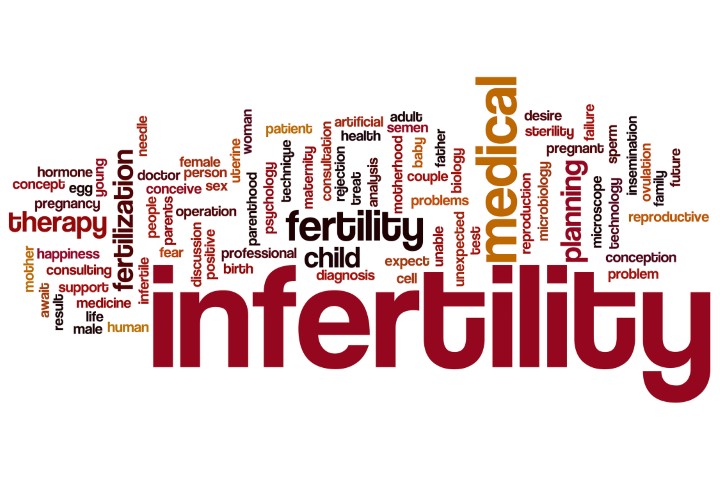


Myth 5: Oxford University and AstraZeneca’s COVID-19 vaccine will turn people into monkeys.
Fact: This fabricated claim is based on the fact that Oxford and AstraZeneca’s vaccine depends on an altered chimpanzee adenovirus proposed to trigger an immune response against the COVID-19 virus, SARS-CoV-2. As per media reports, such false claims are being spread through social media platforms as a part of a disinformation campaign.
Myth 6: The U.K. regulators will use artificial intelligence to observe the safety of COVID-19 vaccines, as they know about these vaccines being extremely dangerous.
Fact: Though MHRA has given a contract to Genpact to make an artificial intelligence apparatus for monitoring adverse effects of COVID-19 vaccines, the officials have stated that this is not due to foresight of hazards posed by vaccines. Besides, an adverse event report does not demonstrate that the adverse event was caused solely due to the vaccine.
The regulators also stated that based on available published clinical trials, they do not expect any particular safety concern with COVID-19 vaccines, as of now. They believe that the COVID-19 vaccines’ general safety profile to be comparable to other vaccine types. A COVID-19 vaccine will only be introduced when its safety and effectiveness is proven through strong clinical trial data.
Myth 7: A document on the FDA website shows that two participants died as a result of “serious adverse events” from an experimental COVID-19 vaccine.
Fact: There were two deaths among the 21,000 people in the trial who received Pfizer and BioNtech’s COVID-19 vaccine, but the U.S. Food and Drug Administration did not attribute those deaths to the vaccine.
According to a December 2020 FDA document describing the circumstances of the deaths, “one experienced a cardiac arrest 62 days after vaccination #2 and died 3 days later, and the other died from arteriosclerosis 3 days after vaccination #1.” The document also said in the case of the second death, the participant had “baseline obesity and pre-existing atherosclerosis,” or a narrowing of the arteries.
There were also four deaths reported among the 21,000 trial participants who received a placebo. The deaths “represent events that occur in the general population of the age groups where they occurred, at a similar rate,” according to the FDA document.
To determine the safety of the vaccine, the trial recorded what are called “serious adverse events,” defined by the U.S. National Library of Medicine as any medical event that results in death, hospitalization, or interferes substantially with normal life functions. The FDA document said among the serious events reported in the Pfizer/BioNTech trial, it considered only two as possibly related to the vaccine: a shoulder injury and swollen lymph nodes, a common and typically benign condition.
Myth 8: The virus mutates so fast that a vaccine will never work.
Fact: Available evidence suggests that the COVID-19 virus is genetically stable and mutates slowly. For example, scientists say that the COVID-19 virus mutates twice as slowly as does the seasonal flu virus, which requires a new vaccine every year.
Experts say that COVID-19’s relatively slow rate of mutation suggests that at least for the short term, a vaccine would be effective. Trevor Bedford, an infectious-disease expert at the Fred Hutchinson Cancer Research Center in Seattle, told Business Insider in November 2020: “It will take the virus a few years to mutate enough to significantly hinder a vaccine.”
Myth 9: An individual who already have got the infection once, don’t need to receive the vaccine
Fact: As per evidence, even if you already have suffered from COVID-19 viral infection once, you can still gain from the vaccine. As of now, how long someone will stay protected from getting infected again after recovering from COVID-19 is not known. Natural immunity which an individual develops after getting an infection differs for each person. Some early reports have suggested that this natural immunity may not last for a prolonged duration.
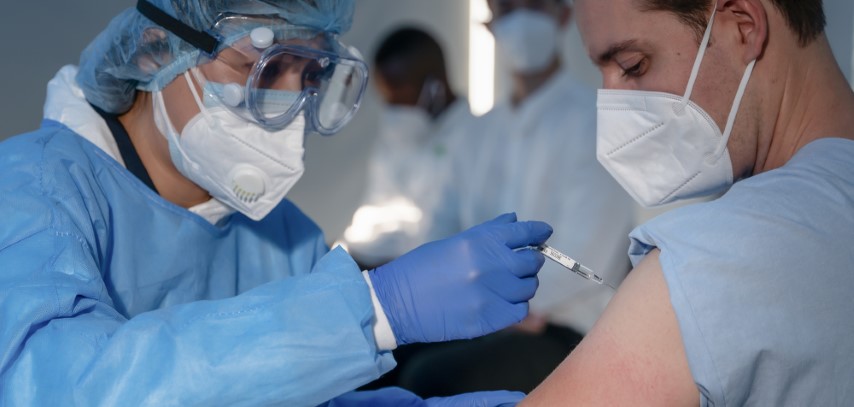


Myth 10: The COVID-19 vaccine has severe side effects such as allergic reactions.
Fact: Though, some vaccine clinical trial participants did develop side effects, they were comparable to those observed with other vaccines, and included minor complaints such as muscle pain, chills, and headache. However, despite being extremely rare, people can develop severe allergies to constituents used in preparing a vaccine. That is why it is recommended that people who have a history of severe allergies to such constituents of the vaccine should not receive the vaccination.
Myth 11: I no longer need to wear a mask after I receive the COVID-19 vaccine.
Fact: Until an ample number of people develop immunity after receiving the vaccine, wearing face masks, frequent hand washing and social/physical distancing continue to remain essential for our lives. These measures are the paramount protective gears we can offer to each one of us, at this moment, and continue following current guidelines for COVID-19 prevention. As sufficient people receive the vaccines and a better idea of the duration of natural and vaccine immunity is gained, we need to follow our pandemic behavioral pattern.
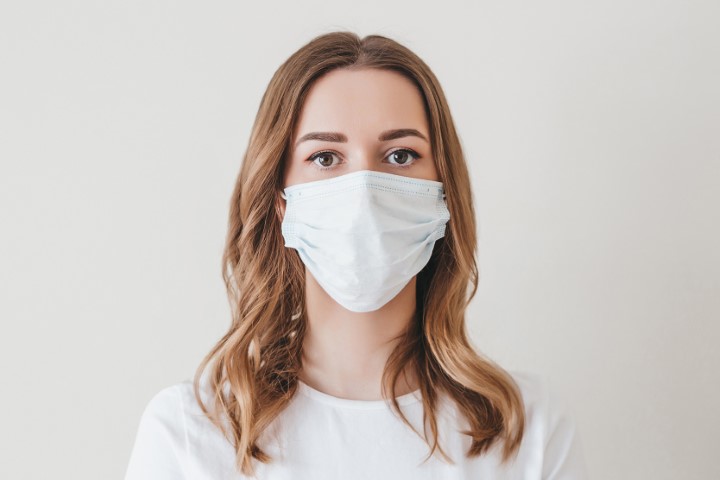


Myth 12: You can get COVID-19 from the vaccine.
Fact: As the vaccine doesn’t contain the live virus, you cannot contract COVID-19 infection and its symptoms after receiving the vaccine.
Myth 13: I will test positive for COVID-19 as soon as I receive the vaccine.
Fact: Viral tests used to diagnose COVID-19 check samples from the patient’s respiratory tract to check the presence of the virus that causes COVID-19. As the vaccine does not contain the live virus, their administration won’t affect your test result. It is possible that you can get infected with the virus in the period before the vaccine becomes efficient to protect your body against the infection.
Myth 14: I don’t need the vaccine, because I am not at risk for developing severe complications of COVID-19.
Fact: You can still contract the infection and spread it to others, irrespective of your risk of complications, so it is vital for each individual to get vaccinated. It is recommended that the vaccine reaches the maximum possible number of adults, once it is widely available. It is not only for the protection of a single individual but for entire families and the community at large.


